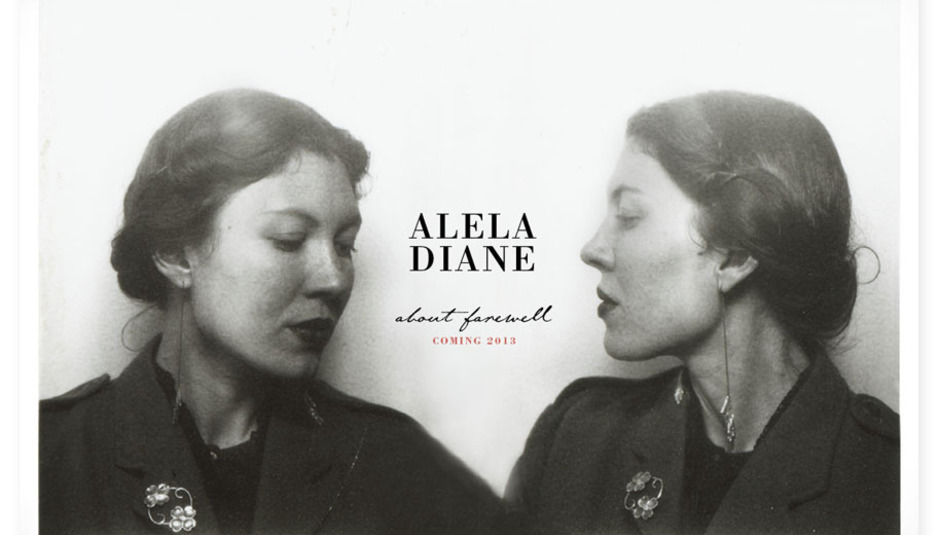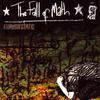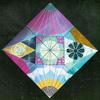About Farewell is an intensely personal album. In part the result of Alela Diane going through a divorce with her ex-husband and former collaborator Tom Bevitori, it is also a clear move away from the larger band sound she explored on 2011’s Wild Divine. While some dozy sorts will be itching to pull out that "back to basics" blurb or even worse the perpetually deployed "return to form", About Farewell is not an attempt to reclaim something lost but simply an effort to deal honestly with the events behind the songs. While the sound may at first recall Pirate’s Gospel and Be Still, a closer listen reveals a directness and maturity unique to this album.
The songs on About Farewell took form during the tour for the Wild Divine album. "I wrote them all within a very short period of time at the end of 2011. I wrote all the songs within two weeks or so, pretty much. And writing the songs, that I don’t think was so much the stressful part. Writing the songs was the release for me, just like saying what I needed to say and it helped me to process the huge decision I was about to make. It was actually going through with that decision and doing all that, that was stressful but making the songs about it helped I think. I wasn’t able to actually write the songs until I got home because it’s pretty challenging to make time to sit down with a guitar and write a melody and a guitar part on tour because there are so many people around all the time. I’ve worked that way before. I’ve written a lot of words on the road and then when I’ve come home I’ve finished the songs. And other times I’ve just randomly written a song very quickly. I do tend to get songs in quick periods of time. Like I’ll write a bunch at once and then I won’t really write for a long time after that."
Asked if the delay between conception of the songs and their completion altered how she felt about the events behind them, Alela said that she stayed true to her “initial gut feeling” and that the directness of the material made things more interesting. “Nothing is really shrouded in metaphor or anything. I’m laying my cards on the table. I’m just saying it how it is. I mean how it is from my perspective. And it was interesting to do that. That way of writing lyrics was something that I hadn’t really done before. Just to feel no shame and just say what I wanted to say without trying to hide what I was saying.”
This directness is one of the reasons why About Farewell is sure to find its way into the rotation of the recently heartbroken along with albums like Damien Rice’s O, Joni Mitchell’s Blue and of course Blood On the Tracks. Like those records its power to comfort is not restricted to the romantic. Alela Diane’s music has been regular listening over the last year during bad times. This album has been a particular help recently. When you have a long history of panic attacks and depression related gubbins, it is vital to possess music that can help you get straight when you are completely turned around. A listen to “Nothing I Can Do” or “Colorado Blue” will do this for you. They will do it for you like “Pink Moon” or Arthur Russell’s “Soon To Be Innocent Fun” on repeat.
“At shows a lot of people have come up to me afterwards and said similar things of how these songs in particular are really helpful because this record is about a personal crisis. It’s about a time of change and acceptance of that and a surrender to it. And I think albums that have really helped me like Blue or Townes van Zandt... things like that. It is very helpful to have those sorts of records to go back and listen to when you’re in the thick of something that you can’t really articulate. And so it feels really good to know that my music has been able to have that impact on people. That validates why I’m making music because I think that, at the end of the day, for me the most important music in my life is music that sort of helps me navigate through a difficult time and sort of offers solace. I think that’s wonderful. It makes you feel human, just recognizing those human emotions that you’re not the only one going through a thing can be really helpful.”
It is tough to make a modern folk/singer-songwriter album. The line between “authentic” and “mimicry” is one which is hard to pin down. You have characters like Frank Fairfield who do their best to sound as if they have just stepped out of an Alan Lomax recording. The question lingers with these acts no matter how accomplished, “Why not listen to the originals instead?” People might go for an overtly modern sound in the hope of popular acceptance. Instead they end up with something that perverts the essence of the genre. This is particularly true with certain modern Blues outfits that have a despicably wide and clean sound. Music for people who can’t fathom listening to Bessie Smith.
Alela Diane has achieved a sound over the years — along with folks like Fleet Foxes and Joanna Newsom - that avoids these problems. She has experience with current musicians who know the score, including Fleet Foxes and revered folk figures such as Vashti Bunyan who she calls “a very, very delicate woman” with “a very gentle spirit”. Her time alongside some of the best in the genre has clearly not gone to waste. About Farewell is probably her best record. It is in many ways a album about working within your limitations. Whether these are emotional, physical or creative, it is music that argues for reality over fantasy. As she sings on the closing ‘Rose & Thorn’, “Don’t ask me to explain / For I do not know why I have been keeping secrets for the first time in my life.” This album is the remedy.
“I think for me I just make the music that I make without really thinking too much about what it’s trying to sound like or what I don’t want it to sound like or any of that. I really try to stay away from reference points and I just use the tools that I know how to use and that happens to be an acoustic guitar and on this record I play a little bit of electric guitar. But I play it very... you know, minimally and the way that I would play an electric guitar which is pretty rudimentary. But that gives it the feel that it’s my record, I think.” While she is happy to work in her own way she does note that her friend Heather Woods Broderick (From The Ground) “who did the flute arrangements and the piano arrangements on the record, she’s way more savvy at some of those things. She does use some guitar pedals and some certain things. But she didn’t really use those on my record. It was more for live performances. I mean (if) my sound can come off as a little as old fashioned I think it’s simply because I’m not using many of the modern tools of music making. I just don’t know how to and I don’t really have any desire to.”
When she adapts traditional songs, as on the EP recorded with Alina Hardin in 2009, Alela does it with similar style. She is not doing it to appeal to stompy bodhrán dancers in the upstairs of some pub but because the song holds a special meaning for her. “I really like doing versions of older songs. Like ‘Bowling Green,’ my parents used to sing that song when I was a kid. We were on tour and this was ages and ages ago, probably in 2008 or 2009. We were on tour in America and we drove through a town called Bowling Green, and so I called my Mom and I was like how does the song go that’s about Bowling Green? And I asked her over the phone and she sang it to me over the phone when we were on tour and Alina and I figured out how to play it. And I think I got some final lyrics and we learned it from there. Of course it came back to me because I’d always known that song but it was just funny how I rediscovered it. There’s so many that I’ve sort of always known just because my parents sang a lot of older songs and traditional songs. It would be fun to do another thing like that.”
This way of stumbling across music is common for Alela Diane. She says that she is not an “avid music collector” and apart from stumbling upon things “here and there” isn't that aware of modern music. “I don’t only listen to folk music. I mean, I think I listen to more older rock and roll and stuff like that...Talking Heads even... they’re great. But I think it’s sort of interesting not having that great of a knowledge or a record collection because that allows me to...when someone does pass something along to me I’m like, oh, this is amazing, why have I never heard this before? But it’s like a constant discovery. Every year I could discover a record that everybody has known about forever but to me I’m like wow, my mind is blown!” Even when it concerns one of her favourite musicians she can still be surprised. “Yesterday my husband - I recently got re-married like three weeks ago or something, side note - but anyways he had a Townes van Zandt record that I didn’t have and we put it on in the house and I was like wow this is great, I’ve never heard this before. And Townes van Zandt is one of my favourite artists!”
About Farewell sounds hollowed out in comparison to Wild Divine, which is as much to do with the tone of the songs as it is to do with the instruments and production. Even when the percussion comes in on ‘I Thought I Knew’ and ‘Black Sheep’, these songs are resolutely from one perspective. They are focused on that experience and do not allow for anything else. It is this that defines the album, not its status as being more "folk" than the last one. Speaking about the reaction to that larger sound Alela said “it was a mixture. There was definitely some resistance and then there were other people who discovered me because I had a bigger sound. But I think overall my most genuine fans they weren’t as interested in me having a bigger sound. They wanted me to do more intimate music so I think a lot of them were relieved when I came out with this record.”
Veering away from the larger and more jovial sound was, however, a practical decision as well as a creative one. Listening to Alela talk about juggling the issues involved gives some insight into the realities of what it is to be a working musician in 2013, even one who has received her fair share of critical acclaim.
“It ebbs and flows. And I’ve been able to make a living. This is the only thing I’ve been doing for about seven or eight years I think. And I get by and you know it’s worked so far but I do think that you have to make a lot of choices, and for me right now one of those choices is deciding to not try to make it bigger than it is and to not tour with a band. Because doing that, you spend so much. There’s so many resources that go into supporting four other human beings and there’s such a responsibility with that, that I don’t think my career at this point is really capable of sustaining. I think in the past it was sustaining that and that was fine but I sort of had to make that decision. It felt like the natural decision to make musically anyway, to not be touring with that many people and to not have as big of an entourage and all of those things are definitely choices to be made. If you’re trying to tour with a band and you can’t afford to tour with a band then you’re not making any money and the band is not going to be going anywhere. So that doesn’t really work out at the end of the day. But it’s really nice to realize that my career will sustain me. And that you know, my voice and these songs that I write are the reason that people come to shows anyway so it’s good to realize that I am capable of doing it without a bunch of other people.”
About Farewell is out now.






















